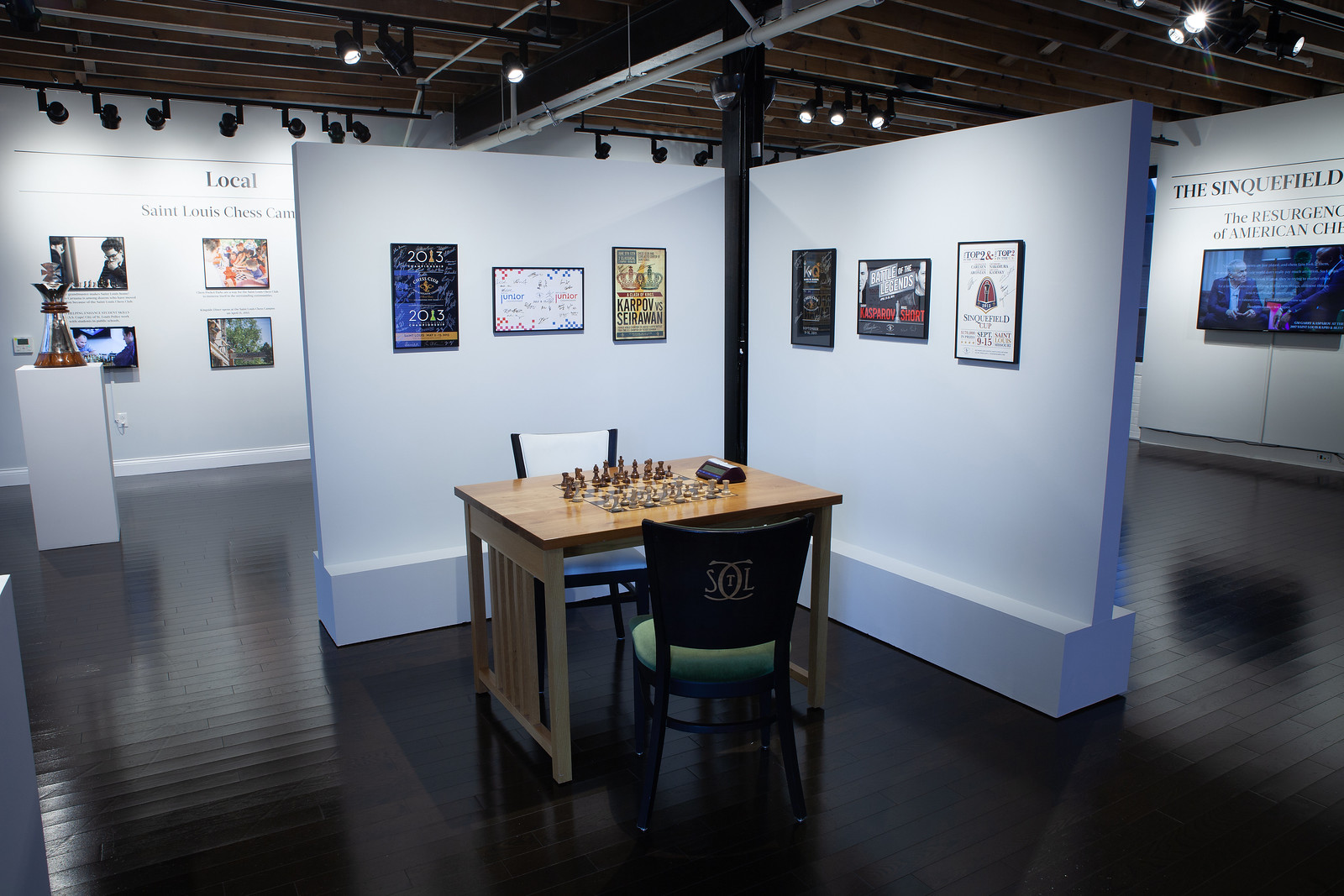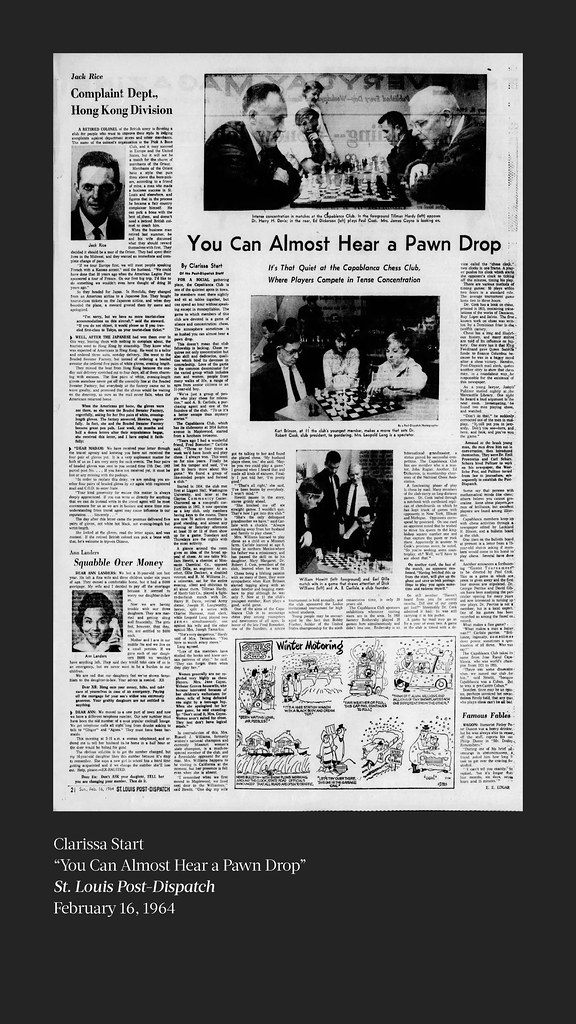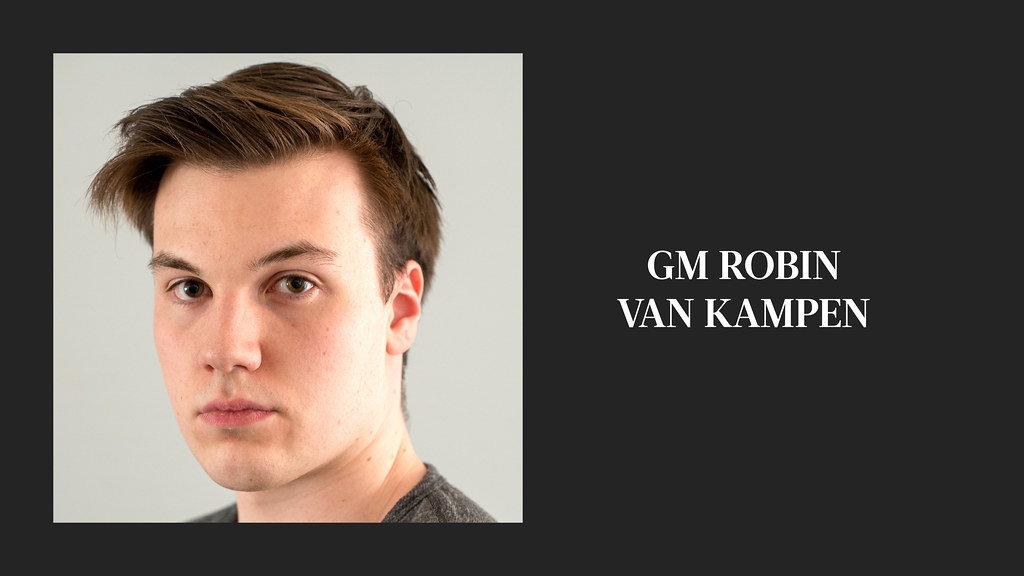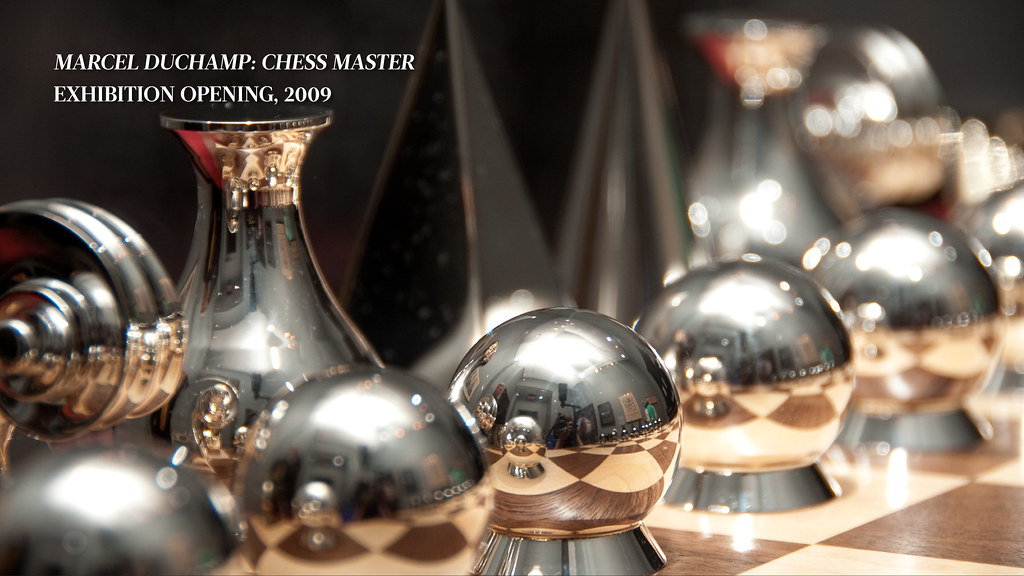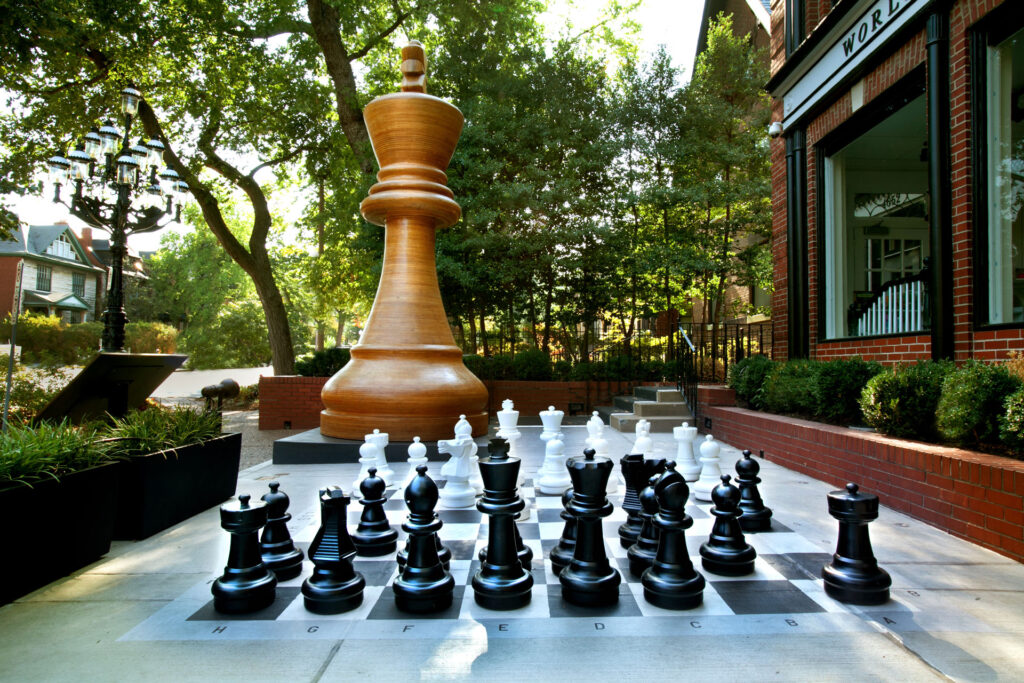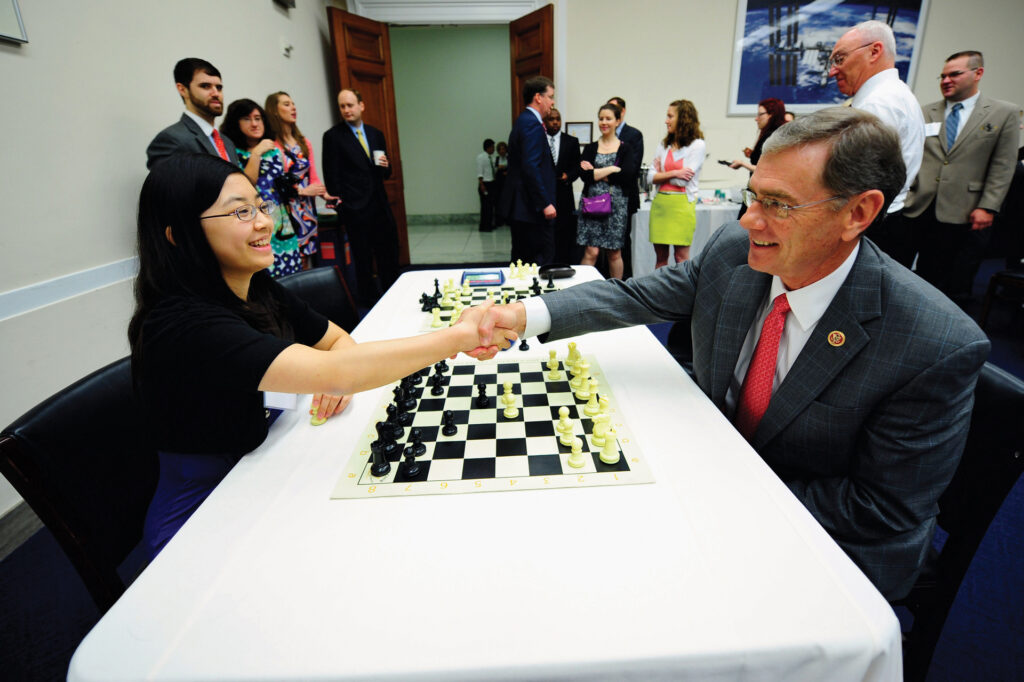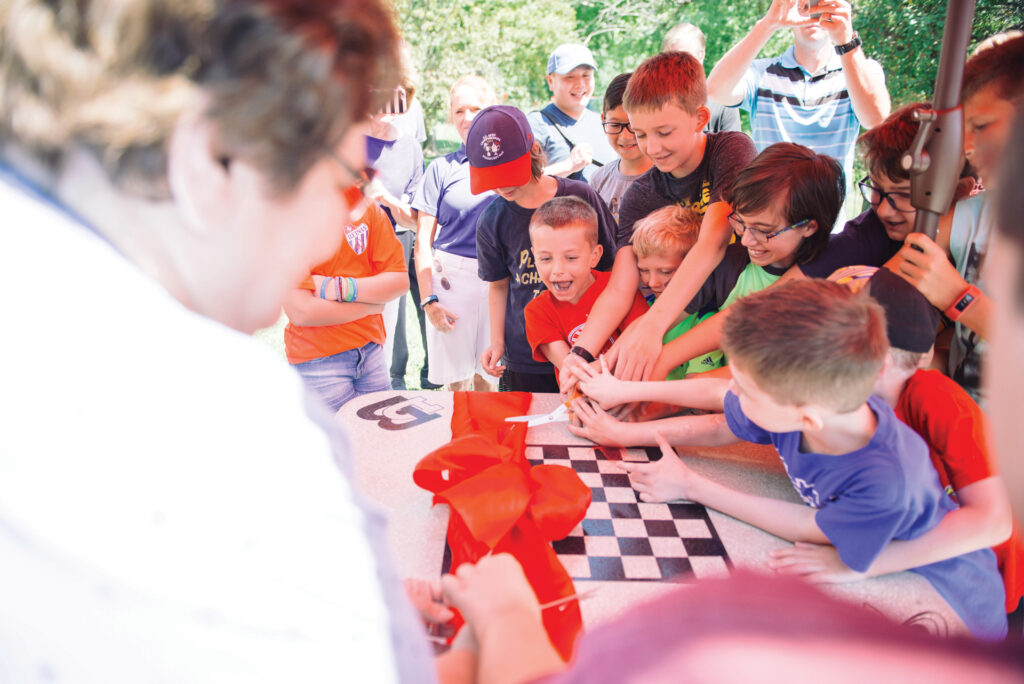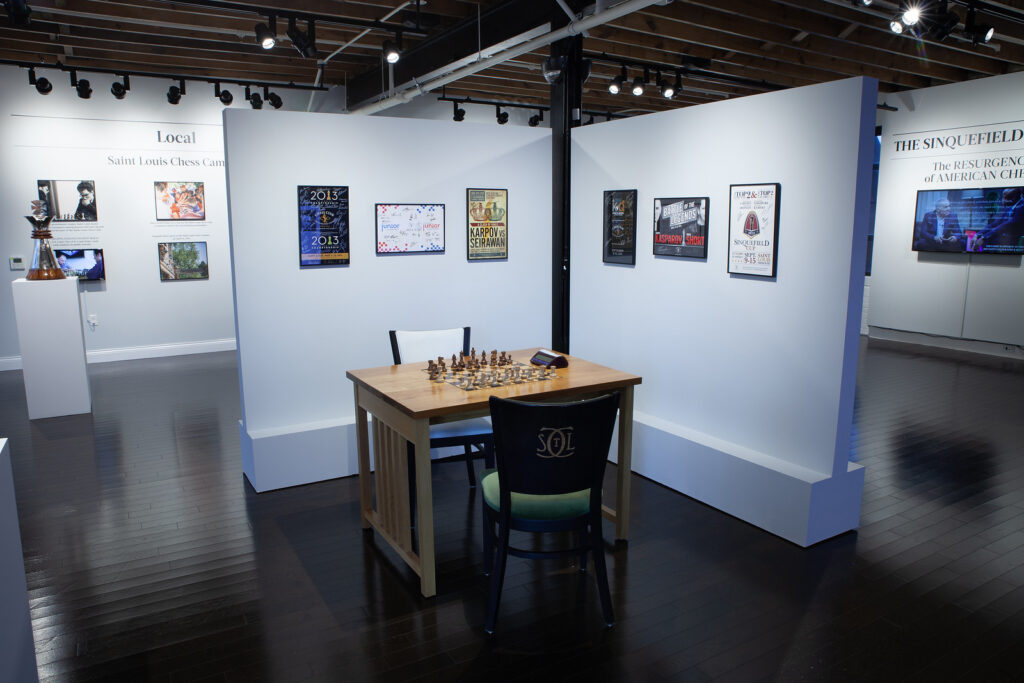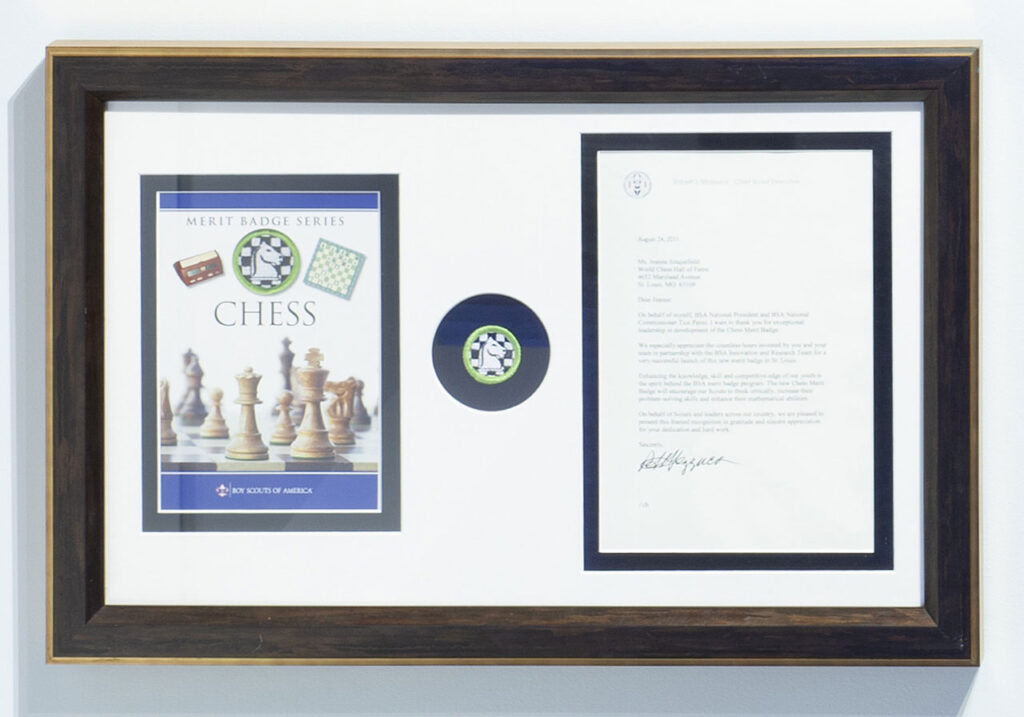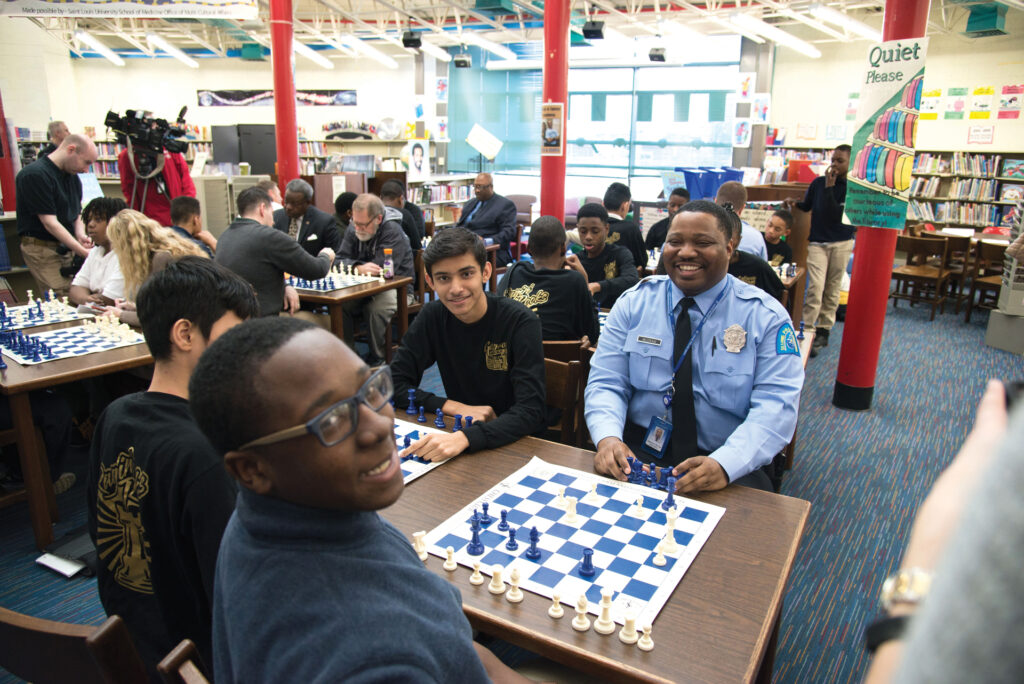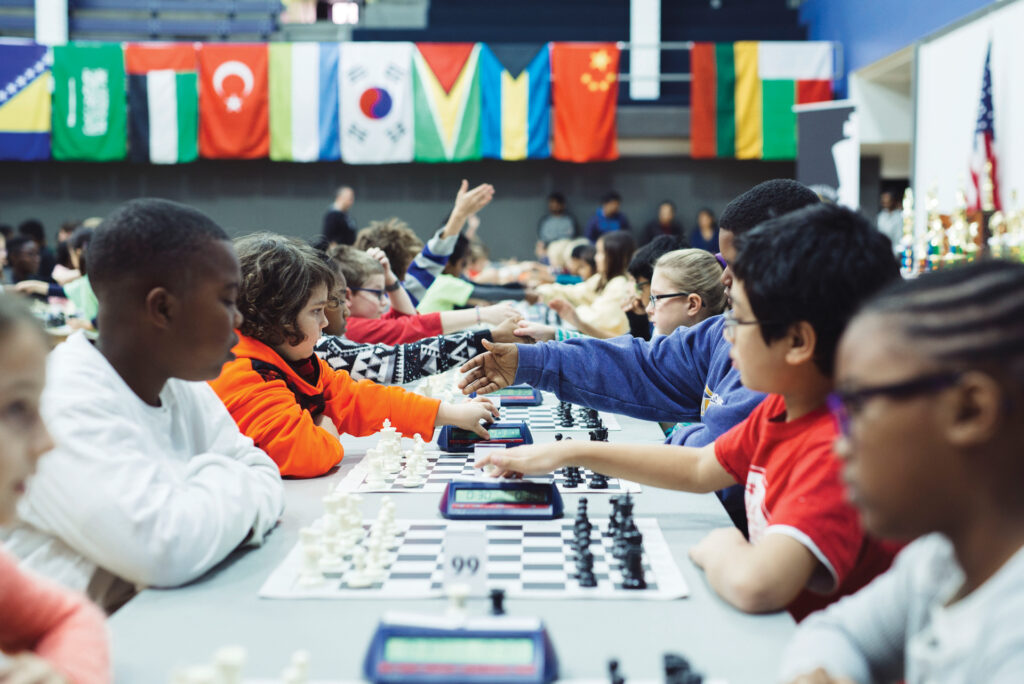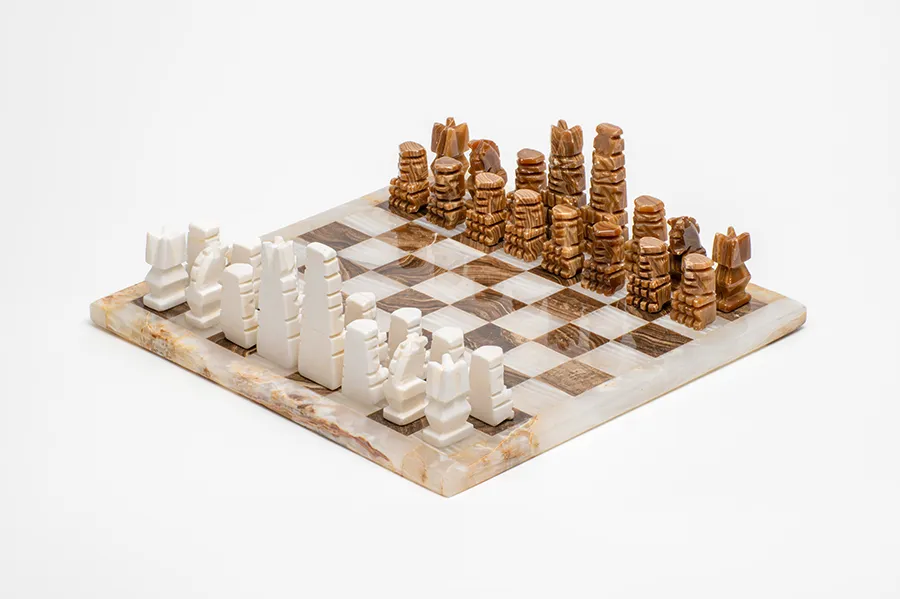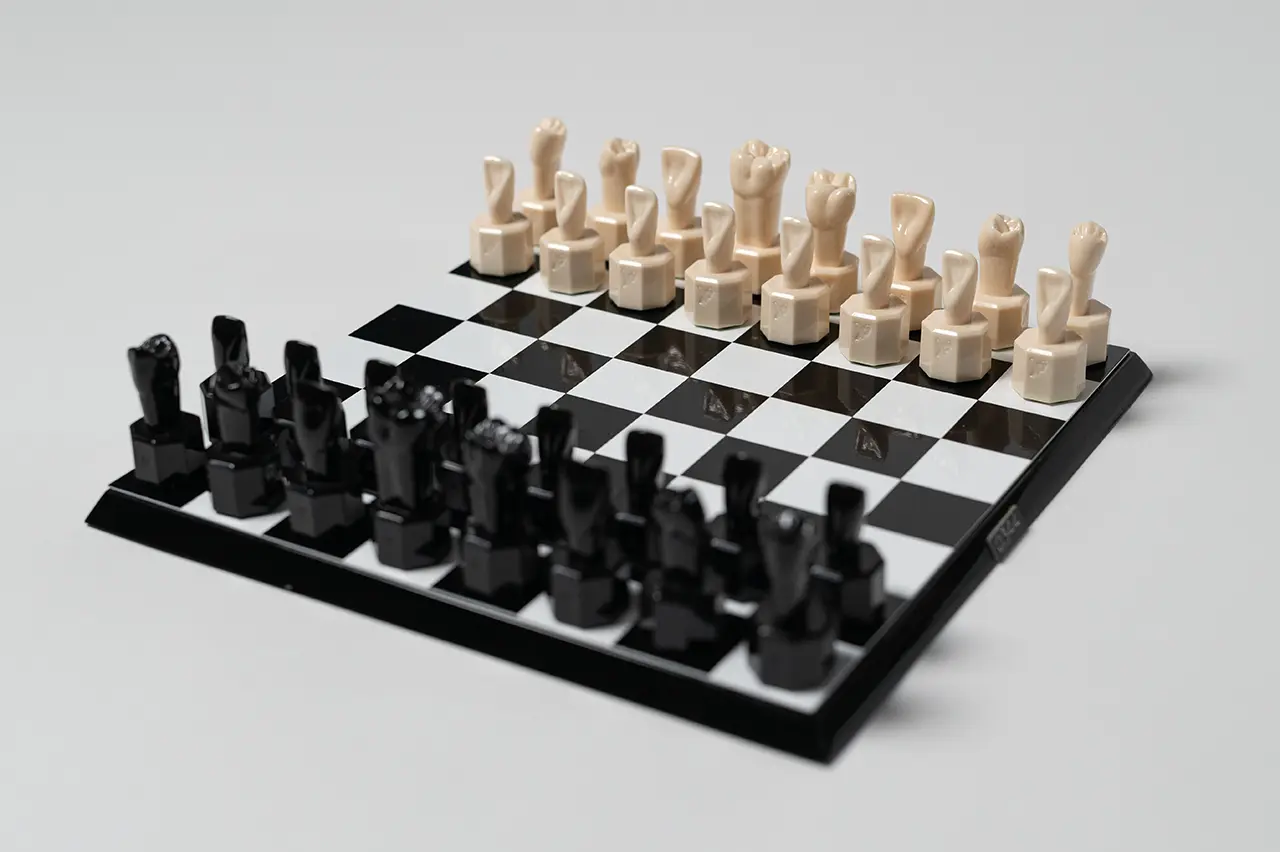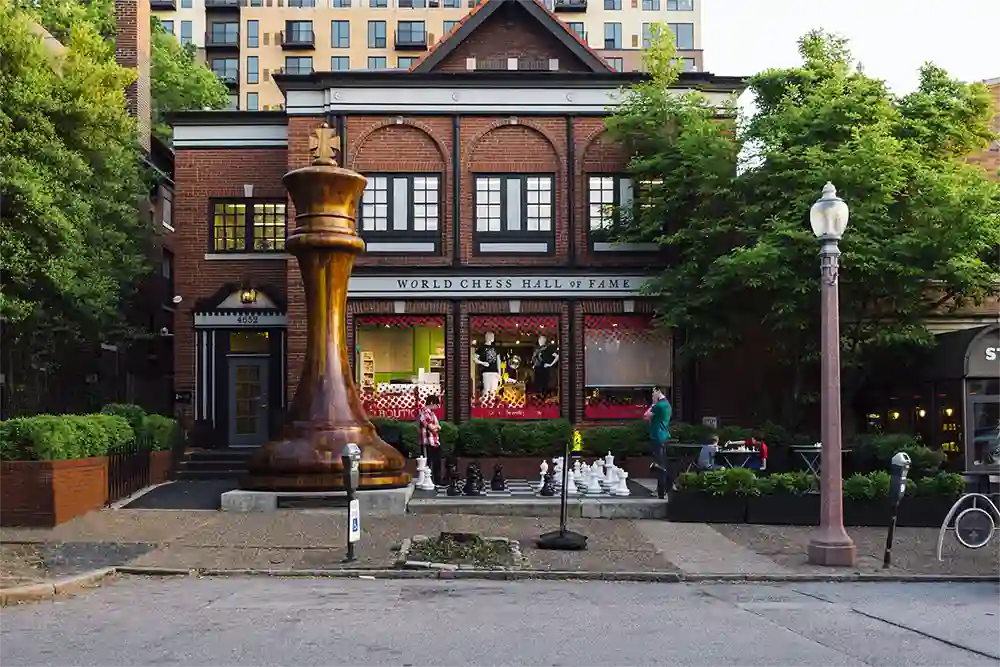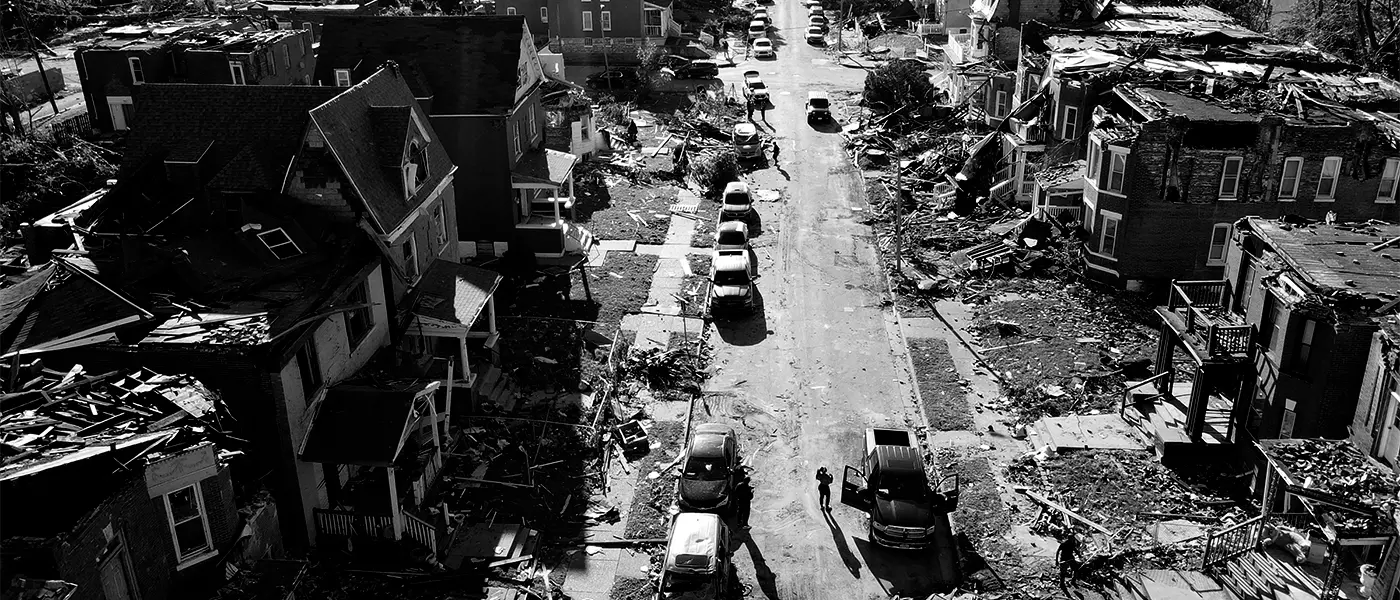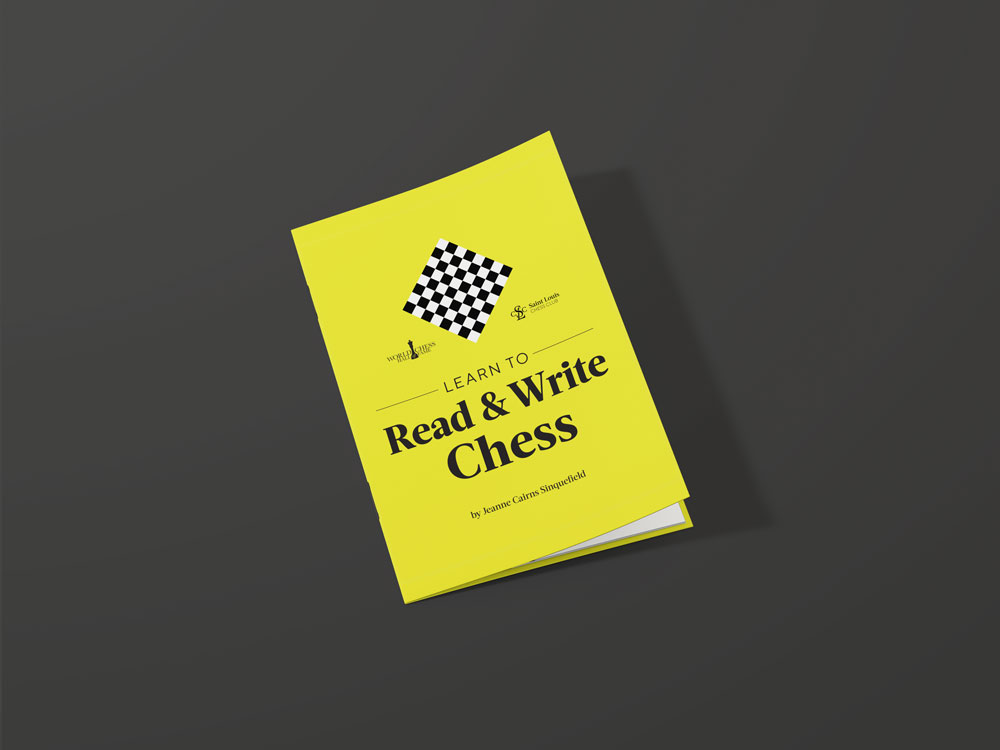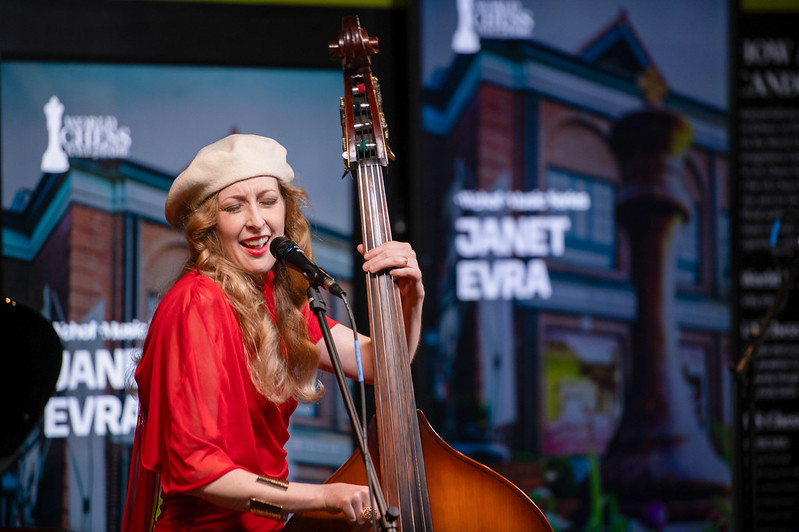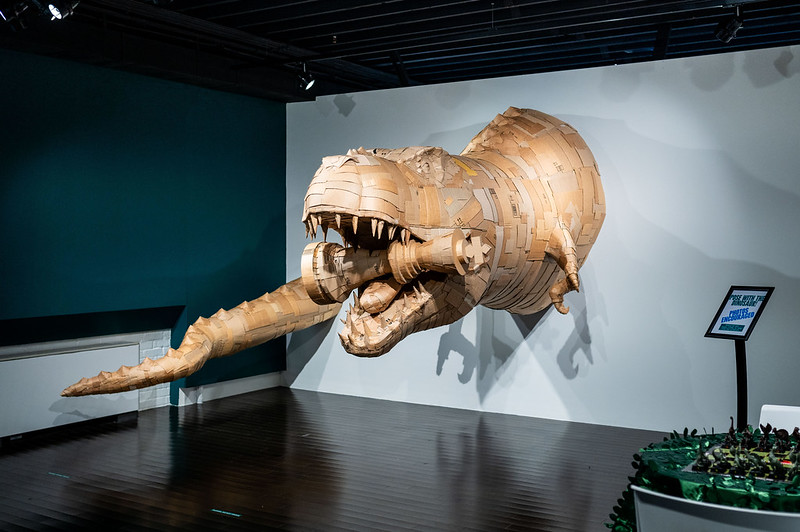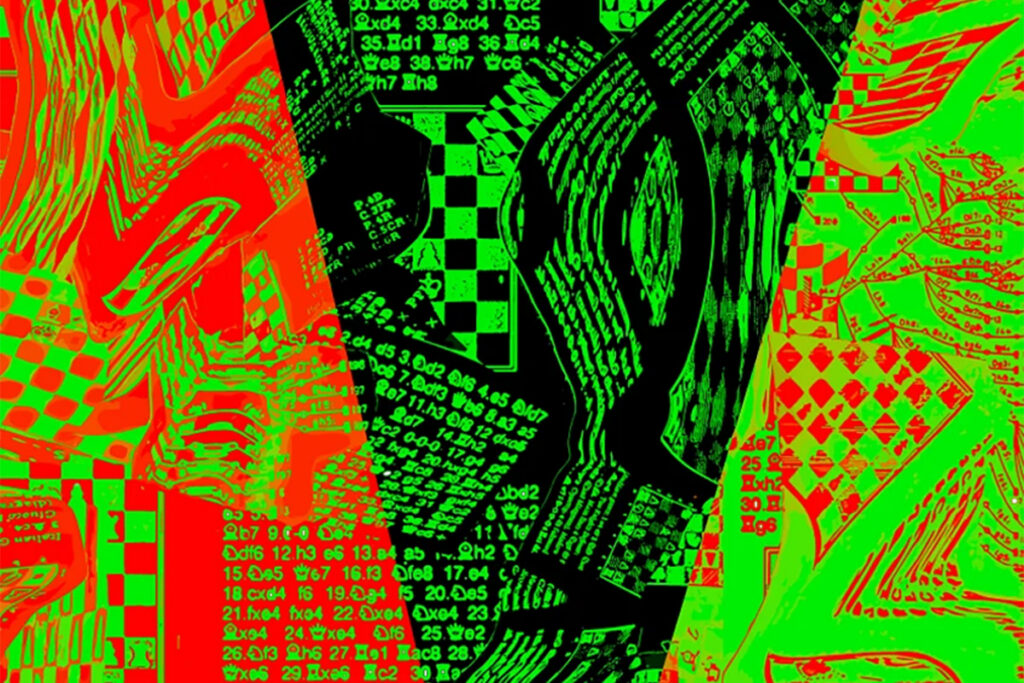April 12, 2018 - February 24, 2019
The Sinquefield Effect: The Resurgence of American Chess

The Sinquefield Effect celebrates the tenth anniversary of the Saint Louis Chess Club and the rapid resurgence of chess in the United States. The exhibition includes artifacts, photographs and video, and explores the impact of Dr. Jeanne and Rex Sinquefield’s instrumental role in Saint Louis’ growing chess culture.
Gallery View
Gateway to the New Chess World
By Garry Kasparov
Legendary World Champion
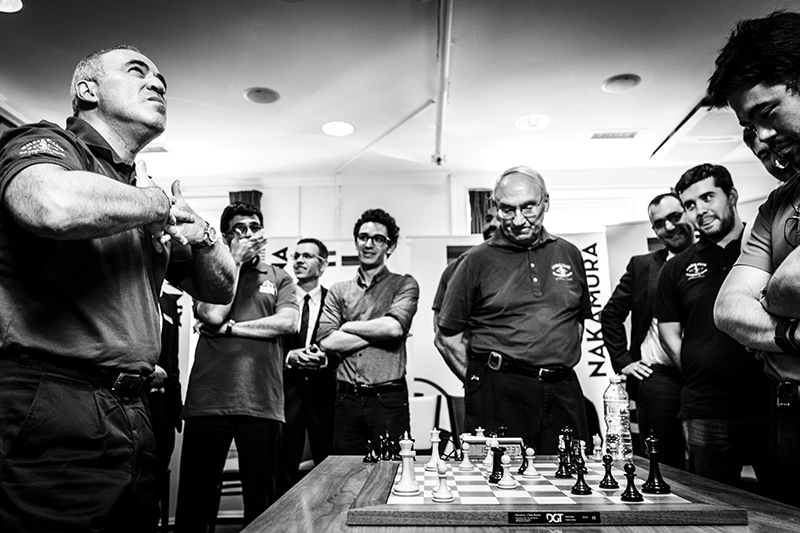
Lennart Ootes
2017 Ultimate Moves Match
2018 will be an eventful year in the chess world. This November, Magnus Carlsen, the reigning world champion, will defend his crown against Fabiano Caruana, who last week became the first American since Bobby Fischer in 1972 to become the challenger for the undisputed World Chess Championship.
Such a pairing would have sounded fantastical when I was climbing the chess Olympus in the 1980s, back when the mighty Soviet chess machine to which I belonged boasted a majority of the world’s elite players. Consider that Carlsen captured the title from Viswanathan Anand of India in 2013, and now, a Norwegian versus an American! Thanks largely to a generation raised with super-strong chess computers and the internet, chess has become truly global.
Just as remarkably, to the extent that chess has a new center of gravity it is the United States, and in particular, Saint Louis, Missouri. Caruana won the right to challenge Carlsen by winning the Candidates Tournament on March 27, 2018 in Berlin. Among the eight players in that tournament were two Americans: Caruana and Wesley So. Both live in Saint Louis.
Nor is this new, chess-centric Spirit of Saint Louis limited to hosting elite players. The upcoming championship clash will be followed live online by millions of spectators watching a broadcast from Saint Louis. That’s where three superbly entertaining Grandmasters will break down each move from a studio in the basement of the local chess club, a few blocks from Forest Park. These broadcasts have become a way for chess to transcend its small traditional audience, even if my cherished game is not quite ready to compete with the Super Bowl for viewers.
This April, the second floor of the same building will host the U.S. Chess Championships for the 10th consecutive year. Nearly half the participants in the U.S. Chess Championship will be Saint Louisan: Of the top 10 American players, not only Caruana and So but also Ray Robson and Varuzhan Akobian now live there. Top international players also flock to the Gateway City. In August, the world’s best will compete there in the sixth annual Sinquefield Cup, one of the world’s strongest events.
This feast of chess talent is a classic American melting pot. Caruana was born in Miami, learned to play in Brooklyn, and spent most of his teenage years in Europe. So, the current U.S. Champion, was born in the Philippines, Akobian in Armenia, and Robson in Guam. So and Robson both moved to Saint Louis to attend Webster University in Saint Louis’s suburbs, on chess scholarships. Webster’s powerhouse team, coached by the Hungarian-born Grandmaster Susan Polgar, won the U.S. college championship five years running through last year. (Saint Louis University was a credible third in 2017).
How did all of this come to pass? You can work your way back by following the money, but money without passion is often squandered. In this case, it leads you back to a man, and a family, with a remarkable passion for chess.
In 2005, Rex Sinquefield, a Saint Louis native who had made a fortune in the financial services business, moved back home. One of his goals was policy influence; a conservative-libertarian, Sinquefield is now Missouri’s biggest—and therefore most controversial—political donor. But it was a lower-profile Sinquefield project that may turn out to have even longer-lasting influence in Saint Louis and beyond. His goal was to boost the popularity of a game he’d enjoyed since boyhood, chess. Partly he just wanted more of his fellow Saint Louisans to enjoy it. But he also believed, as I do, that the game chess helps instill self-discipline and strategic thinking in young minds.
Sinquefield bought a 6,000 square foot building in an old neighborhood that evokes Washington’s Georgetown and whose residents had once included T.S. Eliot and Tennessee Williams. In July 2008, he reopened the structure as the Chess Club and Scholastic Center of Saint Louis, with plush furnishings, an attractive game room, and a broadcast studio in the basement. Then the club, and the Sinquefields, started to build a chess culture in Saint Louis.
It’s truly a family affair. Rex’s dynamic wife Jeanne was a driving force behind the Boy Scouts of America adding a chess merit badge. Their son Randy runs the state-of-the-art studio that brings the chess world to Saint Louis online. This isn’t just about money, but tremendous dedication and hard work. Instead of looking for a quick splash, they have built a complete system for kids, parents, coaches, and schools. Half a world away from Moscow, Saint Louis is the true heir to the Soviet chess machine. Perhaps this is why it’s the only place I feel comfortable occasionally breaking my retirement vows to test myself at the board—albeit with more enjoyment than sporting success of late.
Today there are chess programs in 140 schools across the metropolitan area, including the public schools in the city and in Ferguson, as well as in several rural districts in central Missouri. The club offers frequent tournaments, group lessons, private lessons, lectures and even summer camps. With more than 1,000 members, it’s now among the world’s largest chess clubs.
Before this Saint Louis chess Renaissance, the United States did not have a suitable venue for world-class tournaments. It didn’t have a deep-pocketed champion who would sponsor a world-class tournament out of his own pocket. It didn’t have programs to attract and develop world-class players capable of producing a gold-medal Olympiad team and a world championship challenger.
Now the U.S. has all of those things—because Saint Louis has all of those things. I wouldn’t say that Rex Sinquefield did it entirely from scratch, however. After all, the first official world chess championship in 1886 included a brief stop in Saint Louis! But if Rex’s master strategy continues to bear fruit, the world chess championship may soon return to his beloved birthplace. It would be a fitting crowning achievement for what has become the chess capital of the world.
Why Chess In Saint Louis?
By Randy Bauer
Board of Directors, United States Chess Federation
Ten years ago, I was having lunch with Rex Sinquefield, discussing the possibility of doing a study on the City of Saint Louis’ finances. At one point, the conversation turned to chess, and Rex’s passion for the game was immediately evident. I mentioned that the U.S. Championship was looking for a sponsor, and he expressed interest.
I’ve been in literally thousands of similar types of business and civic meetings over the years, and few ‘expressions of interest’ ever pan out. None of those meetings, however, were with Rex Sinquefield. A contract was signed a few months later and the first of what will be 10 consecutive U.S. Championships was held in grand fashion at the similarly grand Saint Louis Chess Club (STLCC).
In the following years, besides the U.S. Championship, Saint Louis has hosted major international tournaments (the flagship being the Sinquefield Cup, which regularly attracts the world’s champions and top contenders), matches and other national, state and regional events. It has become THE constant in U.S. chess—a beacon and gravitational force that regularly attracts ‘the best and the brightest’ to the STLCC and the city.
The best players in the U.S.–and the world—have taken note. It is no accident that the top board on the 2016 U.S. gold medal winning Olympiad team Grandmaster Fabiano Caruana is a Saint Louis resident, and teammate Roy Robson attended college in the city. Former World Champion Garry Kasparov, commenting on the U.S. victory at the Olympiad, tweeted, “Rex Sinquefield and his CCSCSL are the beating heart of Team USA. He deserves a medal from chess!” Grandmaster Ben Finegold sums it up nicely: “Everyone in the world knows this chess club.”
While the accolades of the world’s elite are noteworthy, equally impressive are the opportunities it provides to players at all levels—particularly kids. Rex and Jeanne Sinquefield are passionate about educational achievement for all, and they and the club are putting chess in local schools throughout Saint Louis. As former U.S. Women’s Champion Jennifer Shahade puts it, “this is the Mecca of chess. Obviously, the financial contributions are so considerable and so generous. But a lot of the passion to donate money is that Rex really absolutely loves chess and sees the multifaceted nature of the game.”
The recent heightened interest in chess in the U.S. is on display in movies, TV, magazines and advertisements. I would venture to say that much of that interest can be traced back to Saint Louis. Grandmaster Maurice Ashley explains it this way: “I think the American chess scene has become much stronger because of what’s happening in Saint Louis. The magic of the STLCC. The fact that they bring so many top, elite events to the U.S. Because of that, everyone’s inspired. Everyone—from the top players down to the collegiate ranks down to the scholastic level. And that’s going to continue. It’s a runaway train right now.”
World Champion Kasparov echoed this sentiment in a fitting tribute to Rex’s vision: “now, here in Saint Louis, we are facing the renaissance of the great game of chess.”
International
2016 American Chess Team wins First Olympiad in 40 Years.
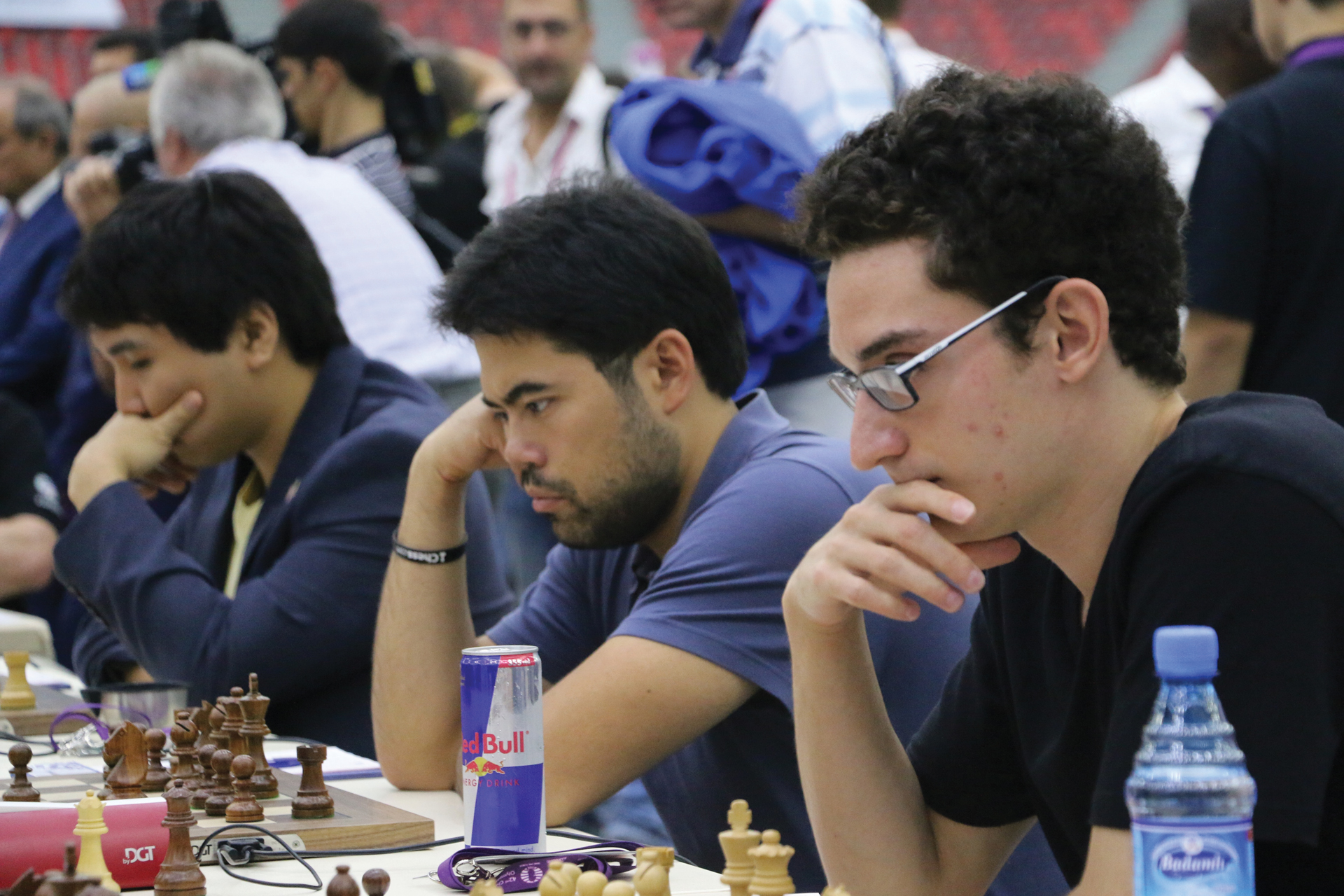
Mike Klein
GMs Wesley So, Hikaru Nakamura, and Fabiano Caruana Compete in the 2016 Baku, Azerbaijan, Chess Olympiad
Courtesy of Mike Klein and Chess.com

Mike Klein
GM Aleksandr Lenderman, GM Hikaru Nakamura, IM John Donaldson, GM Sam Shankland, GM Ray Robson, GM Wesley So, GM Fabiano Caruana at the Closing Ceremony of the 2016 Baku, Azerbaijan, Chess Olympiad
Collection of the World Chess Hall of Fame
Courtesy of Mike Klein, Chess.com
The winning team celebrates their victory in Baku, Azerbaijan.
Fabi Wins!
For the first time since 1972, an American contends for the undisputed World Chess Championship.

Nick Dunaevsky
Fabiano Caruana after Winning the 2018 Candidates Tournament
© Nick Dunaevsky, official photographer of World Chess
Fabiano Caruana won the Candidates tournament on March 27, 2018. He will challenge current World Chess Champion Magnus Carlsen.
Grand Chess Tour
When the first edition of the Sinquefield Cup was held in September 2013, it featured just four players. At that time, no one could have predicted the chain of events that would ultimately result in the creation of the Grand Chess Tour.

Austin Fuller
Grandmaster Maxime Vachier-Lagrave, Winner of the 2017 Sinquefield Cup
Collection of the World Chess Hall of Fame
GM Maxime Vachier-Lagrave 2017 Sinquefield Cup Winner.
Local
Saint Louis Chess Campus

Austin Fuller
GM Fabiano Caruana at the 2017 Saint Louis Rapid & Blitz Tournament
Collection of World Chess Hall of Fame
Courtesy of the Saint Louis Chess Club
Another grandmaster makes Saint Louis home! GM Fabiano Caruana is among dozens who have moved to the region because of the Saint Louis Chess Club.

Austin Fuller
Ribbon-cutting ceremony at Francis Park in Saint Louis Hills, 2017
Courtesy of the Saint Louis Chess Club
Chess Pocket Parks are a way for the Saint Louis Chess Club to immerse itself in the surrounding communities.
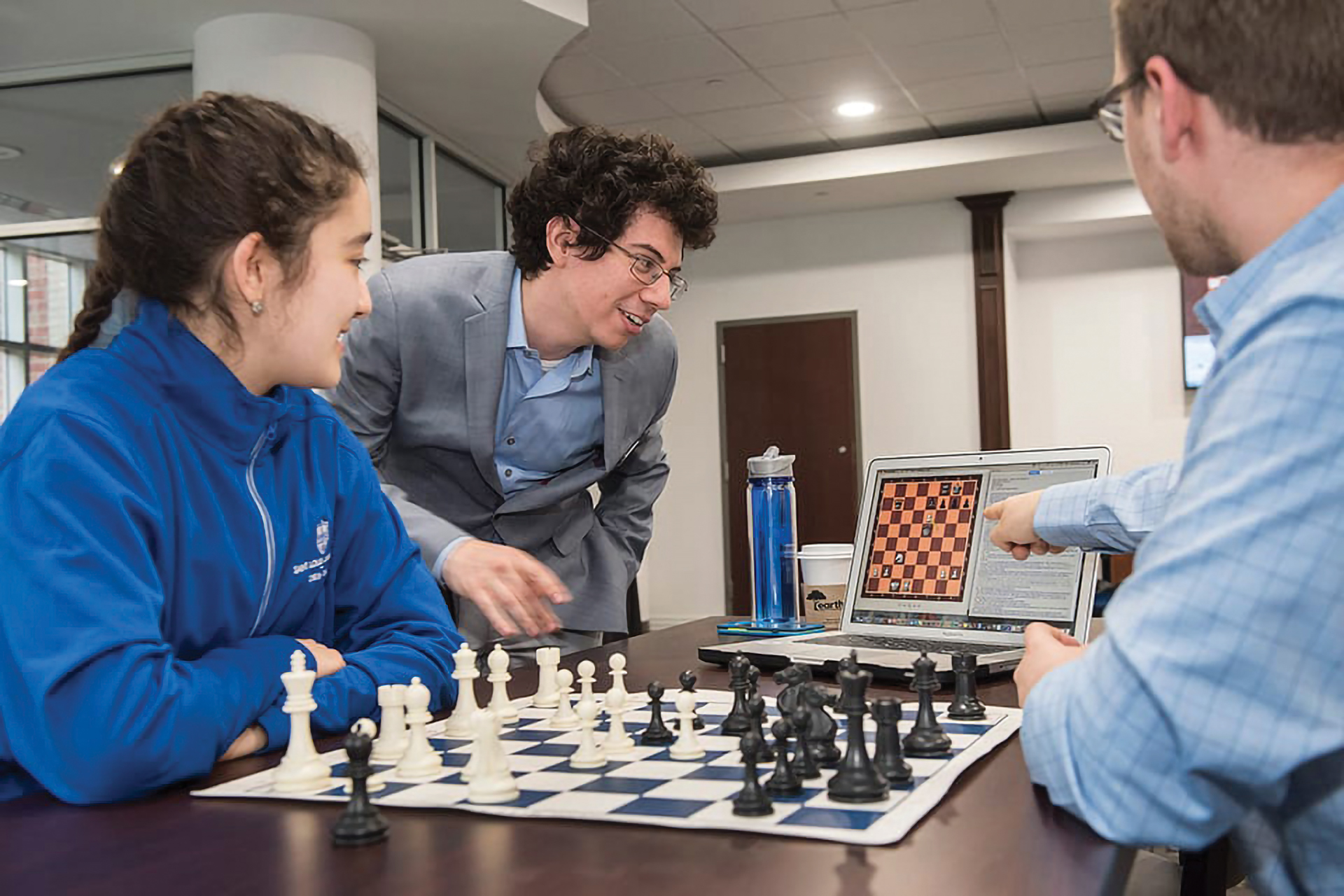
Steve Dolan
GM Alejandro Ramirez coaching at SLU, 2017
Courtesy of Steve Dolan
Coached by GM Alejandro Ramirez, the new Saint Louis University team placed third in 2017 and fourth in 2018 at the Presidents Cup—the final four of collegiate team chess.
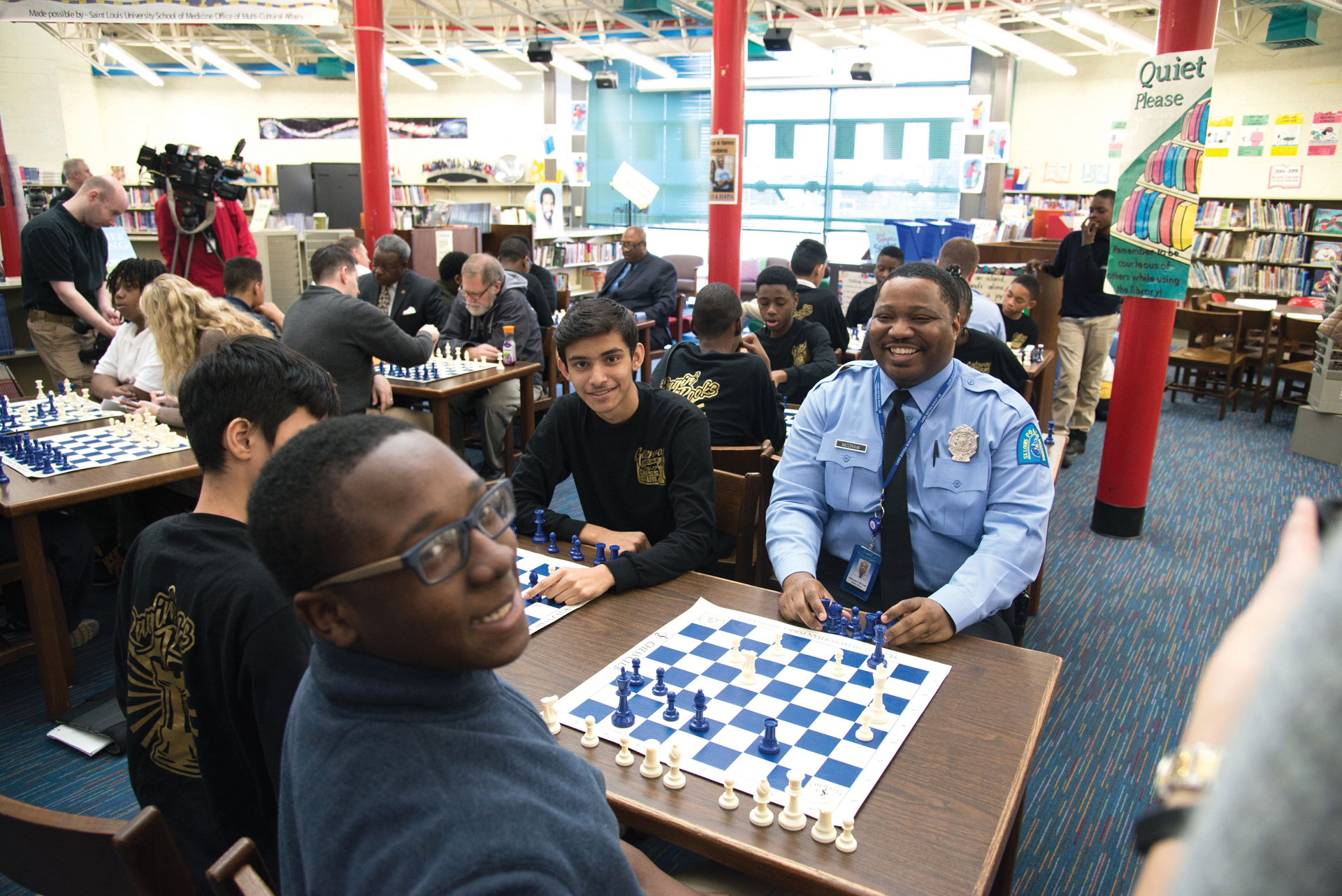
Austin Fuller
Officer Nate McGraw enjoying a chess game with St. Louis Public School students, 2017
Courtesy of the Saint Louis Chess Club
Cops Helping Enhance Student Skills — C.H.E.S.S. Cops! City of St. Louis Police work with students in Public Schools.

Austin Fuller
Kingside Diner Grand Opening, 2015
Courtesy of the Saint Louis Chess Club
Kingside Diner opens at the Saint Louis Chess Campus on April 15, 2015.
The Grandmaster in Residence program allows players of all ages and skill levels to learn chess from GMs from around the world.
National
Saint Louis is the Chess Capital of the United States
The Saint Louis Chess Club has hosted major U.S. tournaments.
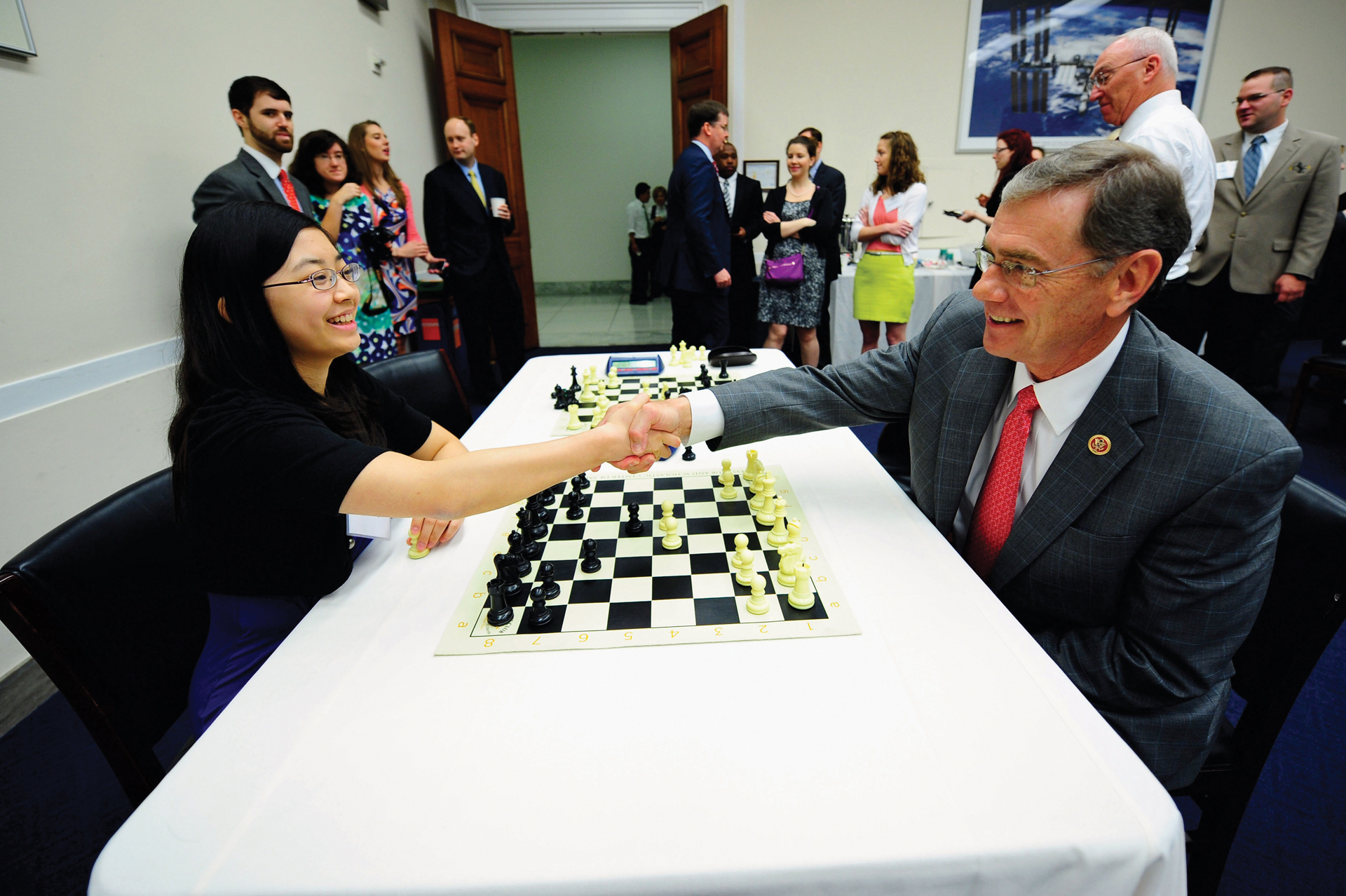
Spectrum Studios
Congressional Chess Match in Washington D.C., 2013
Courtesy of the Saint Louis Chess Club
On May 5, 2014, the U.S. Senate unanimously passed a resolution recognizing the Saint Louis Chess Club for its achievements and designating Saint Louis as the Chess Capital of the United States.
Arts & Culture
Chess Museum Moves to Saint Louis

Lennart Ootes
World Chess Hall of Fame, 2017
Courtesy of the Saint Louis Chess Club
The World Chess Hall of Fame opened in Saint Louis on September 8, 2011.
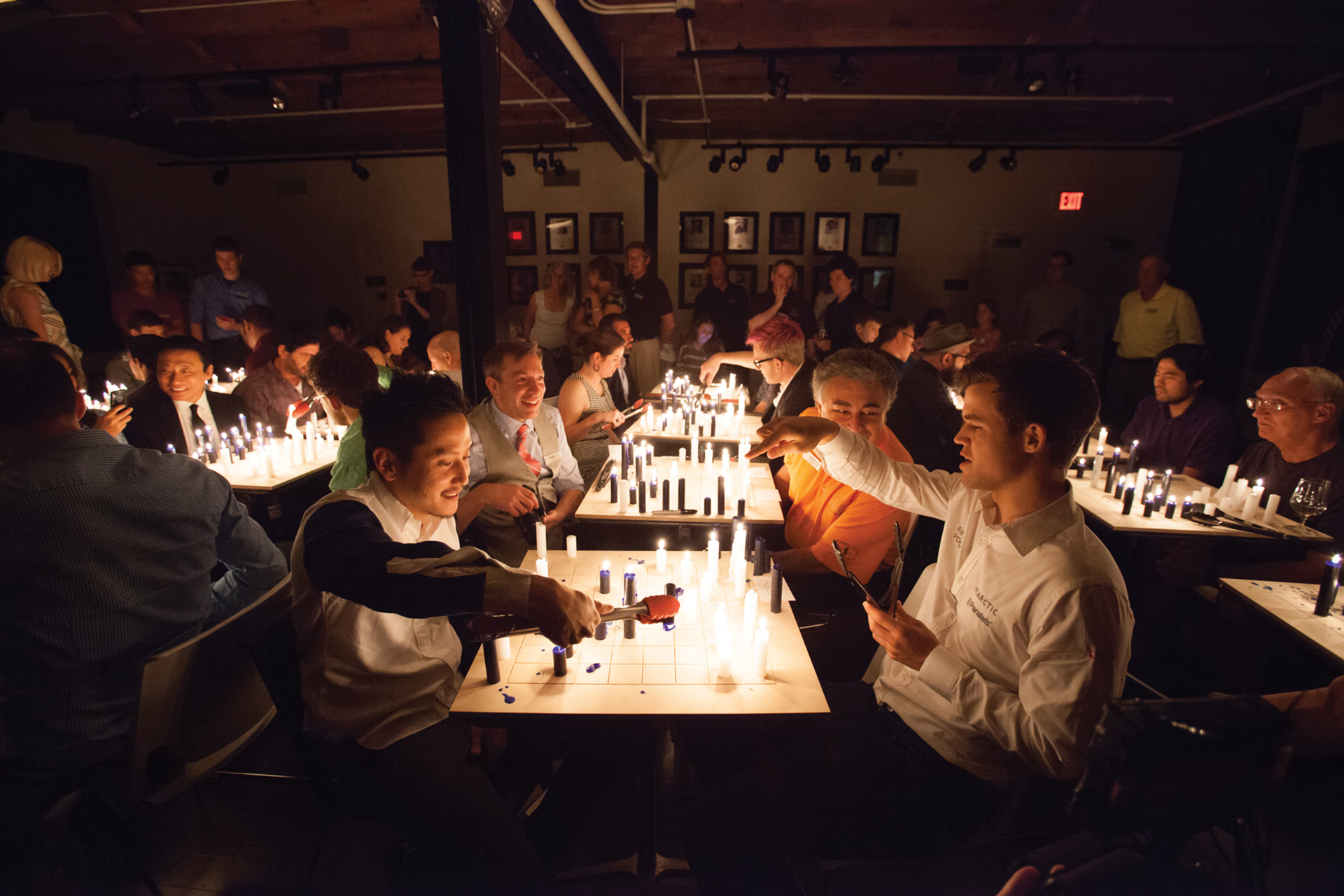
Glenn Kaino
The Burning Boards, 2014
Collection of the World Chess Hall of Fame
Photo by Carmody Creative
16 chess experts played 16 artists and art experts in Glenn Kaino’s The Burning Boards on September 9, 2014.

Carmody Creative
World’s Largest Chess Piece, 2012
Collection of the World Chess Hall of Fame
Saint Louis has been home of the Guinness World Records Largest Chess Piece from 2012-2014 and again in 2018.
The Intersection of Art & Chess
Prior to the opening of the WCHOF, the Saint Louis Chess Club hosted major art projects.
Scholastics
The Soul of the Chess Club

Austin Fuller
Turkey Tango Scholastic Tournament, 2017
Courtesy of the Saint Louis Chess Club
In the spring of 2018, the Saint Louis Chess Club’s Scholastics Department gave free weekly chess lessons to 2,410 students in 35 Saint Louis Public Schools.

Austin Fuller
Ascension Partnership Kick-off Event, 2015
Courtesy of the Saint Louis Chess Club
Through the Your Move Chess Program, Ascension partners with the Saint Louis Chess Club to offer lessons to underserved youth throughout the region. The program began in 2015 in the Ferguson-Florissant School District.
Boy Scouts of America Chess Merit Badge

Boy Scouts of America Chess Merit Badge Booklet, 2011
Collection of Dr. Jeanne and Rex Sinquefield
Boy Scouts of America Chess Merit Badge, 2011
Collection of Dr. Jeanne and Rex Sinquefield
Letter from Robert J. Mazzuca to Dr. Jeanne Sinquefield Regarding Development of Chess Merit Badge
August 24, 2011
Collection of Dr. Jeanne and Rex Sinquefield

Signed Chessboard from the 2011 STS-134 Final Mission of the Endeavor Space Shuttle, May 16, 2011
Collection of the World Chess Hall of Fame
Certificate of Authenticity for the Chessboard from the 2011 STS-134 Final Mission of the Endeavour Space Shuttle, May 16, 2011
Collection of the World Chess Hall of Fame
Patch from the 2011 STS-134 Final Mission of the Endeavor Space Shuttle, May 16, 2011
Collection of the World Chess Hall of Fame
Dr. Jeanne Sinquefield spearheaded the creation of the Boy Scout Merit Badge. On September 10, 2011, Jeanne and NASA Astronaut and chess player Greg Chamitoff passed out the award to the first 15 recipients. Chamitoff also presented a chess board from the 2010 U.S. and Women’s Chess Championship which was flown on the Space Shuttle Endeavor. As of April 1, 2018, over 170,000 scouts have earned the badge.
Sports
Let’s Talk About Chess
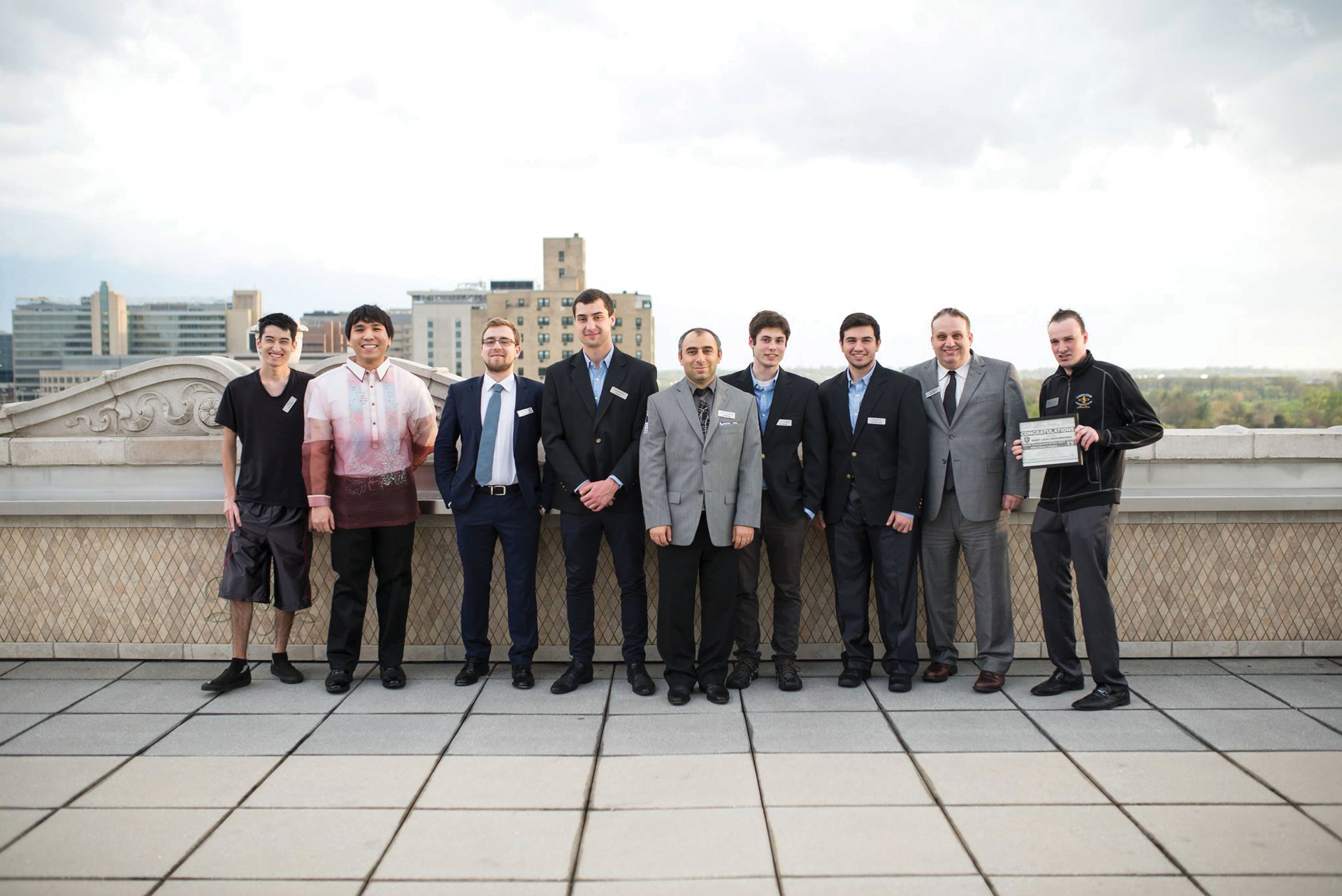
Austin Fuller
2017 Saint Louis Arch Bishops, from left to right: NM Nicholas Rosenthal, GM Wesley So, GM Yaroslav Zerebukh, GM Dariusz Swiercz, GM Varuzhan Akobian, GM Francesco Rambaldi, GM Cemil Can Ali Marandi, GM Ben Finegold, and International Arbiter Mike Kummer
Courtesy of the Saint Louis Chess Club
The inaugural Pro Chess League season ended with a resounding victory by the Saint Louis Arch Bishops in 2017. This season ended with the first ever eSport event April 7-8, 2018, in San Francisco.

Austin Fuller
2017 Sinquefield Cup, Round 1
Courtesy of Saint Louis Chess Club
The Saint Louis Chess Campus has multiple broadcast studios to bring chess to people all over the world with an amazing group of commentators. During the 2017 Sinquefield Cup alone, 900,000 people viewed the online commentary in English and 100,000 in Spanish.
The Big Three
The Saint Louis Chess Club has been the catalyst for chess development in the United States. This is the first time in history that 3 Americans are in the top 10 in the world.
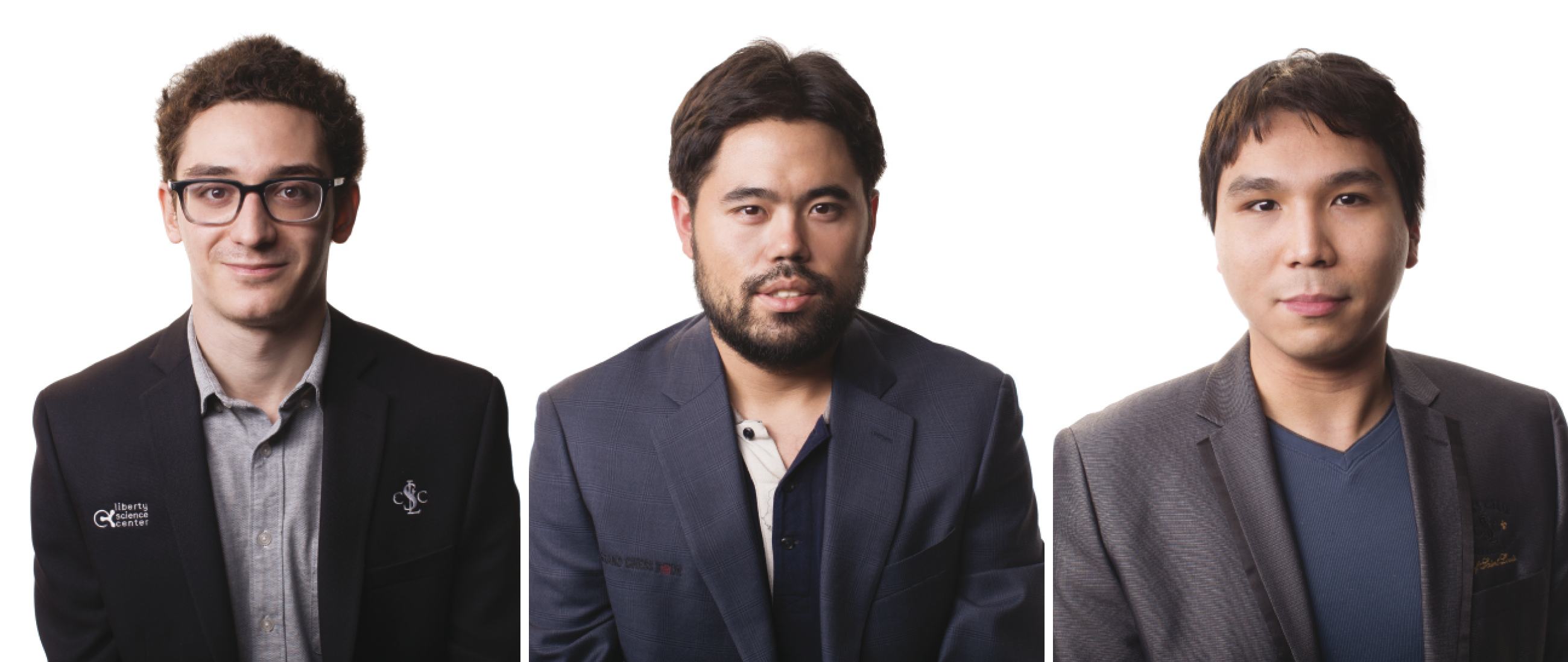
Spectrum Studios
GMs Fabiano Caruana, Hikaru Nakamura, and Wesley So, 2017
Courtesy of the Saint Louis Chess Club
More content coming soon!
Photography courtesy of the Saint Louis Chess Club
Exhibition Newspaper
Downloads
The Sinquefield Effect Newspaper, part 1
The Sinquefield Effect Newspaper, part 2
The Sinquefield Effect Newspaper, part 3
The Sinquefield Effect Newspaper, part 4
The Sinquefield Effect Newspaper, part 5
Press
8/17/2018: Fox 2 — Players compete for the Sinquefield Cup (video)

